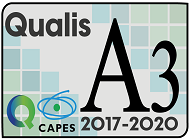Anti-anthropocentric democracy: devices of representation, listening and extra-human visibility
Dispositivos de representação, escuta e visibilidade extra-humana
DOI:
https://doi.org/10.31068.310204Keywords:
Posthumanism; Deliberative democracy; Climate Emergency; ontological turn; Aesthetics of politics.Abstract
The article examines conditions of political, ethical and aesthetic possibility of an anti-anthropocentric representative democracy, that is, one that thematizes and mobilizes political devices to address political decision-making biases that impact extra-human entities. To achieve this objective, we first examine biological and ontological foundations that support the hypothesis that any sensitive entities carry a type of inalienable interest: that of persevering in their own existence. Considering the validity and consequences of this hypothesis, we transport it to a classic reflection of representative democracy, which concerns the possibilities and challenges of expanding this political regime so that it promotes legal, political and moral recognition of such inalienable interests. In this step, we consider the challenges and possibilities of dealing with the (insurmountable) anthropocentric bias in political decision-making about extra-humans, based on the possibility of the latter becoming minimally represented, audible and visible. Seeking to outline answers to this problem, we present three conditions necessary for such an anti-anthropocentric reconfiguration to be operated in representative democracies: a) inclusion of indigenous peoples in decision-making about extra-human entities; b) experimentation with deliberative devices that support a dissenting interaction between representatives of different ontologies; c) mobilization of imagery and audiovisual devices that lessen the “incommensurabilities” of being affected by the inalienable interests of other modes of existence.
Downloads
References
ALONSO, Angela; ACOSTA, Valeriano. Ciências Sociais e Meio Ambiente no Brasil: um balanço bibliográfico. In Revista Brasileira de Informa? 別 s Bibliograficas em Ciencias Sociais,(Brazilian Journal of Social Sciences Literature Reviews), 53: 35-78, 02., 2002.
BIONDI, Angie Gomes. Três figurações do corpo sofredor no fotojornalismo. CECS-Publicações/eBooks, p. 227-245, 2016.
BIERMANN, Frank. The Anthropocene: A governance perspective. The Anthropocene Review, v. 1, n. 1, p. 57-61, 2014.
BRAGA, José Luiz. Dispositivos interacionais. Encontro Anual da Compós, v. 20, p. 1-15, 2011.
BUTLER, Judith. Quadros de guerra: quando a vida é passível de luto? Rio de Janeiro: Civilização Brasileira, 2015.
CALDERÓN, Andrea Soto. La performatividad de las imágenes. Santiago de Chile: Ediciones Metales Pesados, 2020.
CURATO, Nicole et al. Twelve key findings in deliberative democracy research. Daedalus, v. 146, n. 3, p. 28-38, 2017.
DE LA CADENA, Marisol. Indigenous cosmopolitics in the Andes: Conceptual reflections beyond “politics”. Cultural anthropology, v. 25, n. 2, p. 334-370, 2010.
DE ALMEIDA, Mauro W. Barbosa. Caipora e outros conflitos ontológicos. Revista de Antropologia da UFSCar, v. 5, n. 1, p. 7-28, 2013.
DOBSON, Andrew. Representative democracy and the environment. Democracy and the Environment, p. 124-139, 1996.
DONALDSON, Sue; KYMLICKA, Will. Zoopolis: A political theory of animal rights. Oxford University Press, 2011.
DONOSO, Alfonso. Representing non-human interests. Environmental Values, v. 26, n. 5, p. 607-628, 2017.
DRYZEK, John S.; PICKERING, Jonathan. Deliberation as a catalyst for reflexive environmental governance. Ecological Economics, v. 131, p. 353-360, 2017.
DRYZEK, John S.; PICKERING, Jonathan. Deliberation as a catalyst for reflexive environmental governance. Ecological Economics, v. 131, p. 353-360, 2017.
DRYZEK, John S. et al. Deliberative global governance. Cambridge University Press, 2019.
ECKERSLEY, Robyn. The discourse ethic and the problem of representing nature. Environmental Politics, v. 8, n. 2, p. 24-49, 1998.
FEINBERG, J. 1974. ‘The rights of animals and unborn generations’. In W. Blackstone (ed.), Philosophy and Environmental Crisis, pp. 43–68. Athens, GA: University of Georgia Press.
GARNER, Robert. A theory of justice for animals: Animal rights in a nonideal world. Oxford University Press, 2013.
GOODIN, Robert E. Enfranchising the Earth, and its Alternatives. Political studies, v. 44, n. 5, p. 835-849, 1996.
HICKMANN, Thomas et al. (Ed.). The anthropocene debate and political science. Routledge, 2018.
MARQUES, Ângela Cristina Salgueiro. Política da imagem, subjetivação e cenas de dissenso. Discursos Fotográficos, v. 10, n. 17, p. 61-86, 2014.
MONDZAIN, Marie-José. «Nada, tudo, qualquer coisa. Ou a arte das imagens como poder de transformação», in A República por Vir: Arte, Política e Pensamento para o Século XXI, ed. Leonor Nazaré e Rodrigo Silva. Lisbonne: Fondation Calouste-Gulbenkian, 2011, p.103-128.
NIXON, R. Slow Violence and the Environmentalism of the Poor. Harvard University Press, 2011.
ROLSTON III, H. ‘Enforcing environmental ethics – civic law and natural value’. In J. Sterba (ed.), Social and Political Philosophy: Contemporary Perspectives, pp. 349–369. London: Routledge, 2011.
STERBA, James P. Global justice for humans or for all living beings and what difference it makes. The Journal of ethics, v. 9, n. 1, p. 283-300, 2005.
PITKIN, Hanna Fenichel. The concept of representation. University of California Press, 1967.
RANCIÈRE, Jacques. Le travail des images. Conversations avec Andrea Soto Calderón. Dijon: Les Presses du Réel, 2019
RUSNAK, Gerett et al. Co-management of natural resources in Canada: A review of concepts and case studies. Minga. No. 2, 1997.
STENGERS, Isabelle. No tempo das catástrofes: resistir à barbárie que se aproxima. São Paulo: Cosac Naify, 2015.
SMITH, L. T. Decolonizing Methodologies: Research and indigenous peoples. 2nd ed. Zed Books, 2012.
SOBREVILA, C. The Role of Indigenous Peoples in Biodiversity Conservation: The Natural but Often Forgotten Partners. World Bank, Washington, DC, 2008.
STONE, Christopher. Should trees have standing. Toward Legal Rights for Natural Objects, 1974.
TSOSIE, K. S. & CLAW, K. G. Indigenizing Science and Reasserting Indigeneity in Research. Hum Biol 91, 137-140.2020.
VARNER, G. In Nature’s Interests? Interests, Animal Rights, and Environmental Ethics. Oxford: Oxford University Press.1998
VELOSO, Lucas Henrique Nigri. “Remédio anti-covardia”: cartografia de vulnerabilidades, comunicação e política na construção e performatividade do dia de luta antimanicomial. 2020.
VELOSO, Lucas; MARQUES, Angela Cristina Salgueiro. Vulneráveis ou vítimas? A experiência das redes de luta antimanicomial em Belo Horizonte e a construção relacional de biopotências. Lumina, v. 12, n. 2, p. 59-78, 2018.
WARREN, Mark E.; PEARSE, Hilary. Designing deliberative democracy: The British Columbia citizens' assembly. 2008.
WISSENBURG, Marcel. The Anthropocene and the republic. Critical Review of International Social and Political Philosophy, v. 24, n. 5, p. 779-796, 2021.











